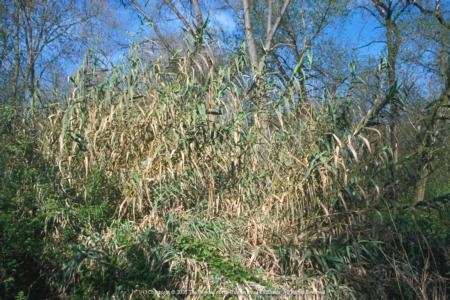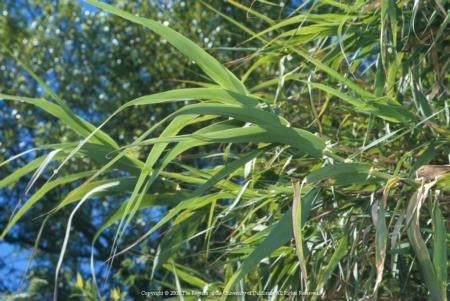Invasive reed arundo is choking state waterways
In the early 1800s, European immigrants introduced the fast-growing giant reed arundo (Arundo donax) into California to use the canes for musical instruments. The plants were also used for erosion control and the reeds used for thatched roofing. However, it has since naturalized and become a serious pest in the state's natural waterways.
Arundo can grow at a rate of four inches per day and can reach heights of 30 feet. It reproduces and spreads when sections of the stem or root break off and float downstream.
Dense stands of arundo displace native riparian species. The plant requires a significant amount of water, reducing fish, wildlife and people. In addition, clumps of arundo and the soil around their roots can break off, causing streambank erosion. The clumps can also create channel obstructions that lead to flooding.
Arundo is highly flammable and can quickly carry fire along waterways. After a fire, arundo quickly grows back from its roots. With other nearby plants burned by fire, arundo can spread even more quickly, leaving no room for native plants to recover.
Californians can help reduce the spread of arundo by taking the following actions:
- Learn more about arundo, including how to identify it
- Report sightings to local conservation groups
- Join local eradication efforts or help to start one
- If you own land with an arundo infestation, request help and provide access for control efforts

arundo

